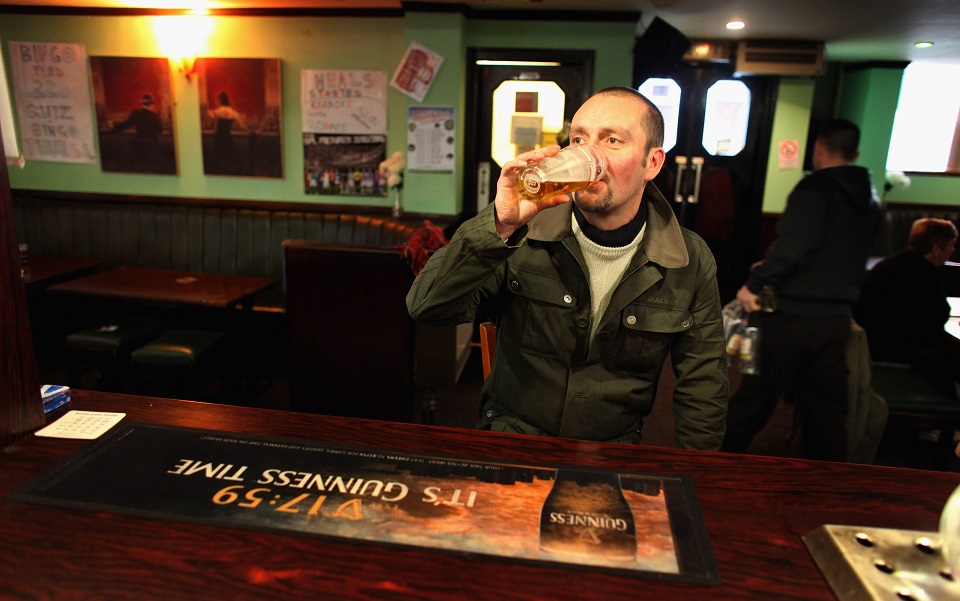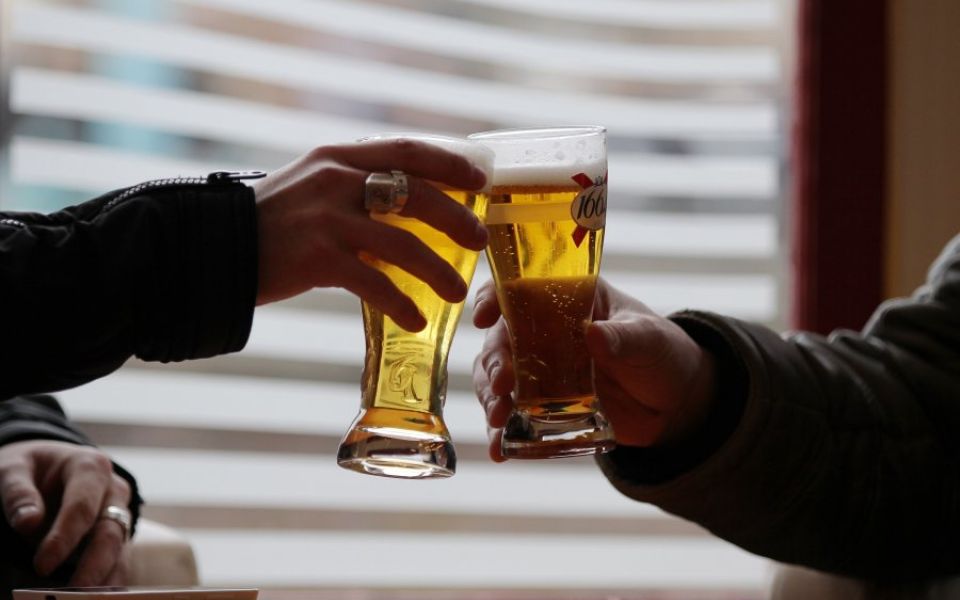Already failing Dry January? Don’t worry – why alcohol free isn’t actually the answer

Helen ditched booze on the 1st of January, the same as she has done for the past six years with the aim of doing Dry January, but she has always found herself drinking again before the month ends. On average she drinks one glass of wine every other day and describes herself as a “happy” drinker, but finds it challenging to give up those few glasses a week. “I gave up after 24 hours as my mind kept wandering to the weekend,” she says. “I tried it but couldn’t sustain it, so I continued business as usual.”
Helen may sound familiar. For many of us, the ambitious idea of a month off drinking gives way to the material reality of a month off the sauce as grey January bowls on seemingly endlessly. Google suggests our interest in having a month off has waned: searches for the term ‘Dry January’ have dropped steadily over the past five years.
People have a prescriptive view of what self care looks like. Green vegetables, candlelit baths, 10km runs before work. But self care really is about recognising what YOUR body and mind needs
Doctor David McLaughlan, founder of the Jitai app promoting moderate drinking
To state the blindingly obvious, there are huge benefits to swerving the good stuff. Experts say three months is actually the ideal time to give up booze to allow our livers to recover, and there are many mental health benefits. The official website says 70% of participants have better sleep and 66% feel they have more energy. For people seeking drug and alcohol treatment, giving up completely makes sense.
But as the tenth anniversary of the official Dry January campaign by Alcohol Change rolls around, a multitude of voices are coming out in favour of alternatives to a month off drinking. Sales of low alcohol drinks are sky-rocketing, new apps are promoting drinking less rather than nothing at all and online, hundreds of thousands are talking about new moderate drinking approaches.

Doctor, mental health ambassador and media personality Dr Ronx is one of the voices amplifying an alternative approach on social media. They are promoting a sustainable approach to drinking rather than going cold turkey. “What’s the point in dry January if you go back to ya old ways in February,” they asked. “Why not “cut down January” or “less January” or “I’m trying my best January”. In another post, Ronx wrote: “Rather than Dry January, try Softlife January… The baseline is kindness. We reject anything that isn’t soft to us.”
Over half a million people have watched videos using the hashtag #softlife on TikTok since the trend blew up in October, when the Nigerian influencer community coined it.
‘Soft life’ celebrates a life of comfort and low stress, and by contrast, #dryjanuary hashtagged videos have drawn in just 129 million views in total. While many #dryjanuary videos are about stopping drinking for one month, not all of the most-viewed are touting a traditional Dry January of alcohol free drinks.
One of the most watched is by TikToker Hana.Elson. Hana promotes a “damp lifestyle” that involves not being sober for January but having less. “The biggest thing to remember is small habits lead to big results,” she says in a video that has gained over 400,000 views. She has also “sworn off” shots and sticks to one type of alcohol rather than switching, and drinks multiple glasses of water between drinks.
I’m not planning on quitting drinking long term, but I’m definitely going to keep using the techniques on the app to moderate my drinking
Adam, a user of the new Jit
“Nothing happens after midnight,” she also teases, revealing she has her last alcoholic drink before the clock strikes twelve. Another video by comedian @Joeleggett entitled “Wonder if anyone has successfully completed it?” parodies a situation between two friends where one is easily convinced to go to the pub after a few days of Dry January. It has over 250,000 views.
Another popular theme on social is that a year-round alcohol free perspective is game-changing rather than just the initial month of Dry January. TikToker Better_Life_Guy has racked up over 300,000 views promoting complete sobriety. “It’s not about feeling good, this is what normal feels like,” he says to those interested in being permanently ‘dry’.
New apps are responding to the consumer call for moderation. Adam, who is 34, is using an app which is “personalised to my goals and gives me options to moderate my drinking as well as completely quitting.” The insurance worker finds it beneficial to give up alcohol entirely but he says the app also appeals to his “sober curious” friends who are – perhaps ironically – often discussing lowering their alcohol intake while down the pub. “I’m not planning on quitting drinking long term, but I’m definitely going to keep using some of the techniques on the app to moderate my drinking,” he says.

Stats reveal a rise in Brits looking for mindful drinking, with 49% of UK adults saying they don’t drink or are planning on cutting back. Low and no alcohol products have also become more popular, with almost one in three (32%) UK drinkers now ‘semi-regularly’ consuming low. Waitrose sales of low and no wine are up 41% compared to the same time last year, and sales of low and no beer have increased 16%.
In tandem, new apps are touting healthy lifestyles incorporating alcohol rather than cutting it out completely. One new product is Jitai, run by doctor David McLaughlan. It launched just before Christmas and has over 2,000 subscribers so far purely from accumulating subscribers by word of mouth.
“Sometimes people have quite a set, prescriptive view of what self care looks like. Green vegetables, candlelit baths and 10km runs before work,” says Dr McLaughlan. “However, my view is that self care is all about recognising what your body and mind needs whilst also thinking about long term, sustainable ways to look after your wellbeing.
“That means that sometimes you might need to give your body a day off from the gym, or reward yourself with a night in with Netflix and a pizza. Dare I say it, but there may even be times where having a beer or glass of wine with a friend might help facilitate someone to open up and ask for support. That’s why with Jitai, we don’t push for absolute abstinence.
“Our goal is always to provide people with the tools to support them in making the drinking decisions they want to make. Sometimes that will be absolute abstinence, but other times, that will be drinking in moderation.”
British pubs are showing they aren’t shy to the demands of moderate drinkers or those cutting booze out entirely. 85% of pubs now sell alcohol free beer, as the cost of living crisis has forced them to adapt to what modern drinkers want. They aren’t the only ones: celebrities like Made In Chelsea’s Spencer Matthews, who has his own alcohol free spirits range, are promoting the idea that going out, even clubbing, needn’t involve drinking heavily.
In short: pint please, mate. But just the one tonight.
Read more from City A.M. Life&Style; sign up to the Jitai app here for tips and new approaches for a healthier lifestyle
